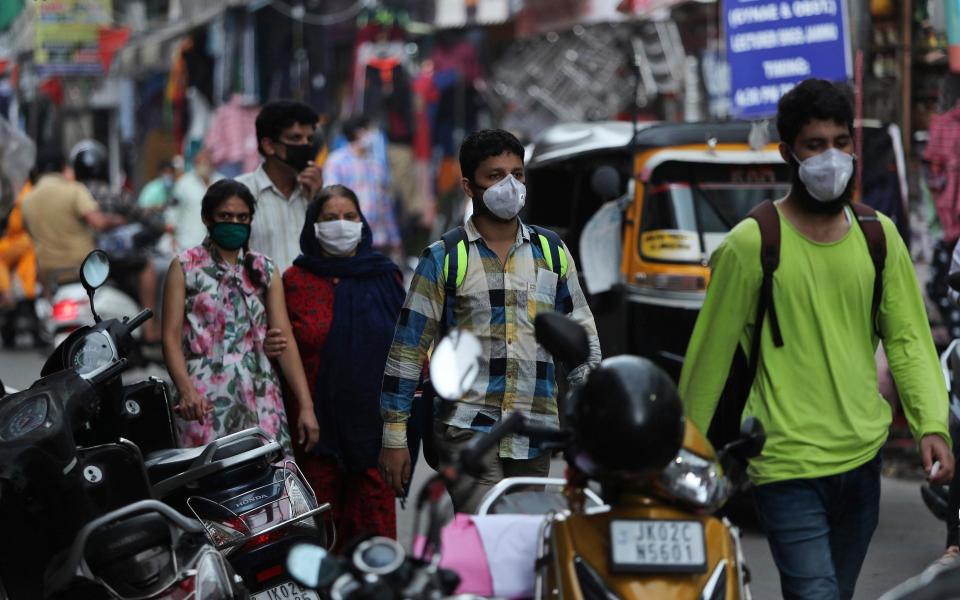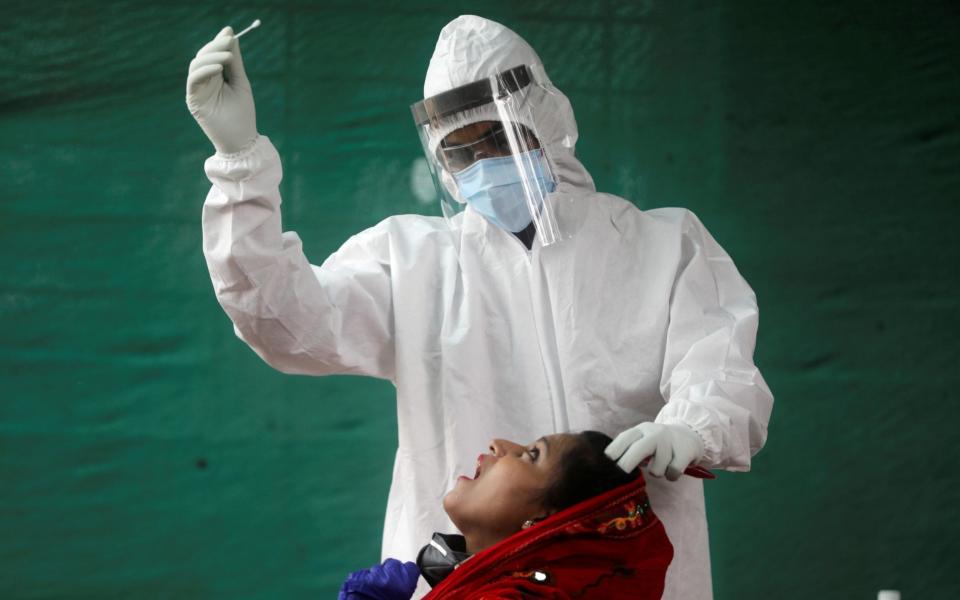Indian state hands out smartphones so poor children can access online lessons

Nearly 175,000 impoverished children in the Indian state of the Punjab will receive a free smartphone so they can continue their education remotely.
Many schools in India have been shut since March to slow the spread of the world’s third-largest Covid-19 outbreak.
The Indian Government instructed schools to continue lessons online but this is impossible for much of the nation’s poor.
Just over 10 per cent of Indians still live on less than £1.50 a day and they can’t afford to purchase a smartphone or another device that permits video calling, like a tablet.
Captain Amarinder Singh, the chief minister of the Punjab, had promised to give free smartphones to poor students as part of an election promise in 2017 but the Covid-19 pandemic has meant that he has fast-forwarded his pledge.
An initial 174,015 students entering class 12 - those aged between 16-18 - in public schools will receive a handset, at a cost of £10.2 million.

The majority of beneficiaries are said to be from impoverished, rural areas and belong to lower-castes or scheduled tribes.
Harpreet Kaur, from the village of Jallah, told the Indian Express the scheme meant she wouldn’t have to wait for her mechanic father to return home late at night so she could use his smartphone.
“Even when he reached home, I had to share the phone with my two other siblings who too go to school,” said Ms Kaur. “I would get the phone for very less time and it wasn’t always possible to complete the pending work.”
Several other Indian states are said to be considering distributing smartphones and tablets to poor pupils, over fears they will fall behind with their studies or drop out of school entirely.
The United Nations has warned that almost 24 million children globally could drop out of education if schools remain shut and alternatives are not provided.

